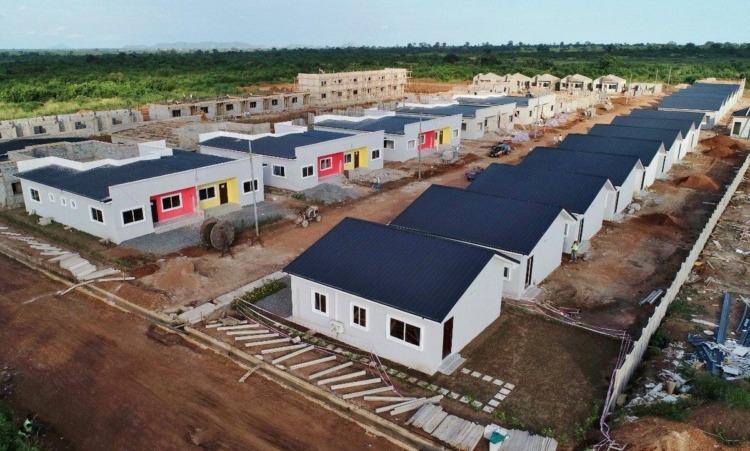Nairobi’s real estate sector is experiencing a shift as a new class of assets emerges, including data centres, grade A offices, affordable housing and purpose-built warehousing even though global capital in emerging markets is waning.
Over the past decade, the city’s development pipeline has been through multiple cycles transforming Nairobi’s real estate sector especially retail sector development.
First came the commercial offices’ boom in Nairobi’s real estate sector at the start of the decade driven by global capital in emerging markets, then the retail boom halfway through this period and now, a shift in focus to alternative sectors focused around the themes of flexibility, accessibility and affordability especially in the grade A offices segment.
Read: Nairobi, most expensive city in east africa
This is according to the Nairobi Development Pipeline Report by Pan-African real estate data company, Estate Intel in collaboration with Axis Real Estate Limited.
Tilda Mwai, Research Associate Estate Intel notes, “Initially, development cycles were being underpinned by the entry of global capital in emerging markets. However, Nairobi’s rising demographics have largely made the case for the shift in focus to alternative sectors such as data centres, flexible office spaces, neighbourhood shopping malls (plazas and supermarkets), purpose built warehousing and affordable housing presenting new opportunities to developers.”
Data Centres for example have seen their market supply increase to approximately 10 MW transforming Nairobi’s real estate sector. Interestingly, over 80 per cent of this stock has come up over the past 5 years, with the development pipeline looking even more promising at approximately 470 per cent of total stock.
The industrial sector, too, continues to be one of Nairobi’s leading real estate market sectors. Developers’ interest matched with occupiers’ demand especially in the SMEs, agricultural and FMCG sectors means that there are unlimited opportunities in the market for investors pushing Nairobi’s real estate sector changing faces.
With only 11 per cent of the total stock estimated at 17 million sq. ft under development, Nairobi’s real estate sector market remains largely undersupplied, especially with regard to purpose-built warehousing. As such, investors are increasingly exploring the space with private equity or investor-operator-type models.
Read: Africa’s warehousing sector set to record massive growth
Quite notably, over 80 per cent of the projects in the pipeline tracked by Estate Intel are already under construction, while the others remain conceptual despite a reduction in global capital in emerging markets.
The office segment in Nairobi’s real estate sector, for example, has an estimated 2,452,385 sq. ft under development in 2022. This accounts for approximately 20 per cent of total stock. Combined with low take-up activity, due to rising inflation pushing out global capital in emerging markets, the market has a clear existing supply glut.
Managing Director Axis Real Estate, V. Gikonyo Gitonga, notes that generally, the market remains largely tenant driven with key markets in Nairobi’s real estate sector such as Kilimani and Westlands recording little to no growth in rents estimated at -0.4 per cent and 0.5 per cent, respectively over the past 5 years.
He adds, “Interestingly, Grade A offices continue to reflect relatively lower vacancy levels estimated at 20 per cent. This has been underpinned by the flight to quality trend that has continued to drive occupier preferences for grade A offices, with major occupiers especially multinationals opting to take up space in this segment in Nairobi’s real estate sector.”
In contrast, the retail sector development pipeline seems to have dried up altogether mostly due to global capital in emerging markets reducing. A large proportion (64 per cent) of the development pipeline is on hold potentially due to the existing oversupply following on the oversupply recorded between 2016 and 2018 that has seen total stock accumulate to approximately 6,921,194 sq. ft.
Mwai explains that interestingly, Nairobi continues to feature as one of the leading retail hubs across Sub-Saharan Africa with a retail density estimated at 0.14, higher than most cities in Africa such as Lagos and Accra which have a recorded density of 0.018 and 0.06, respectively.
This makes Nairobi’s real estate sector attractive to investors willing to tap into the evolving market demands despite the drop in global capital in emerging markets. Grade A offices and affordable housing remain attractive ventures since there is a shortage in good quality housing for low income earners.
“While the future may not be as positive for the market, product differentiation by developers will create all the difference in Nairobi’s real estate sector,” she adds.
On the outlook for the market, Estate Intel points to the current macro-economic environment as the main driving factor even as global capital in emerging markets wanes.
“While Nairobi is often regarded as the gateway to East Africa due to its favourable economic policies and tourist-friendly tone, election-related uncertainty, currency devaluation as well as rising inflation rates have impacted on general transaction activity, especially in the office, retail and residential sectors. This currency devaluation has led to challenges that include but are not limited to, an increase in construction costs in Nairobi’s real estate sector and slowed down project financing. However, with the right balance in measures and incentives, market activity could pick up during the course of the year,” Mwai concludes.
